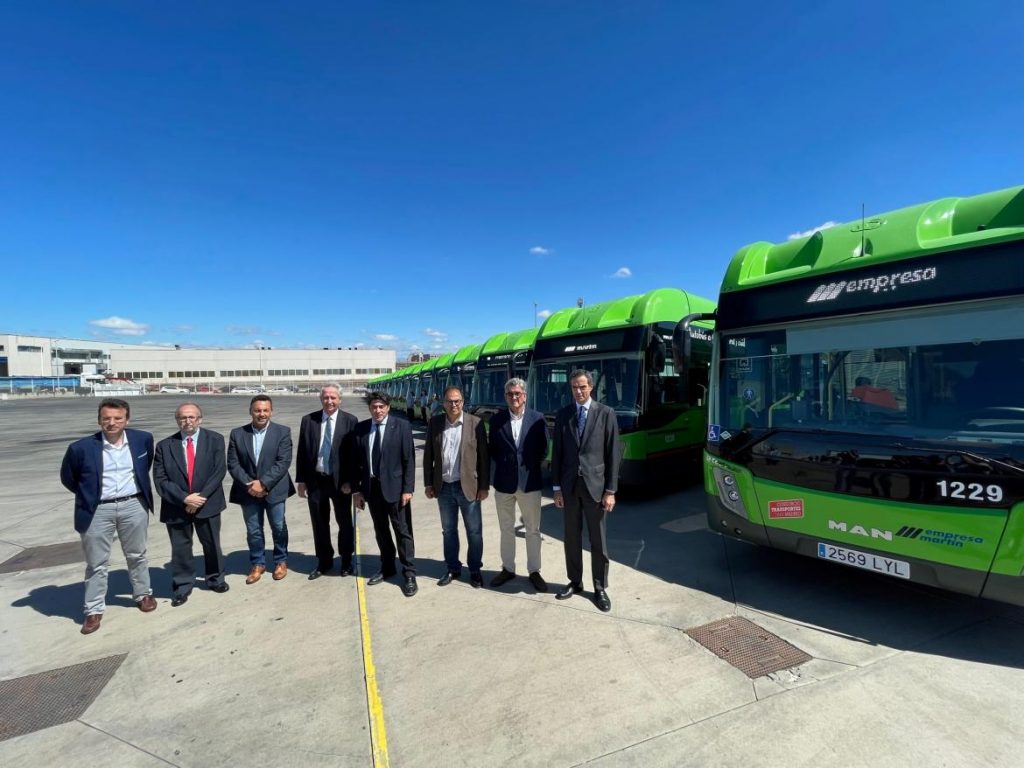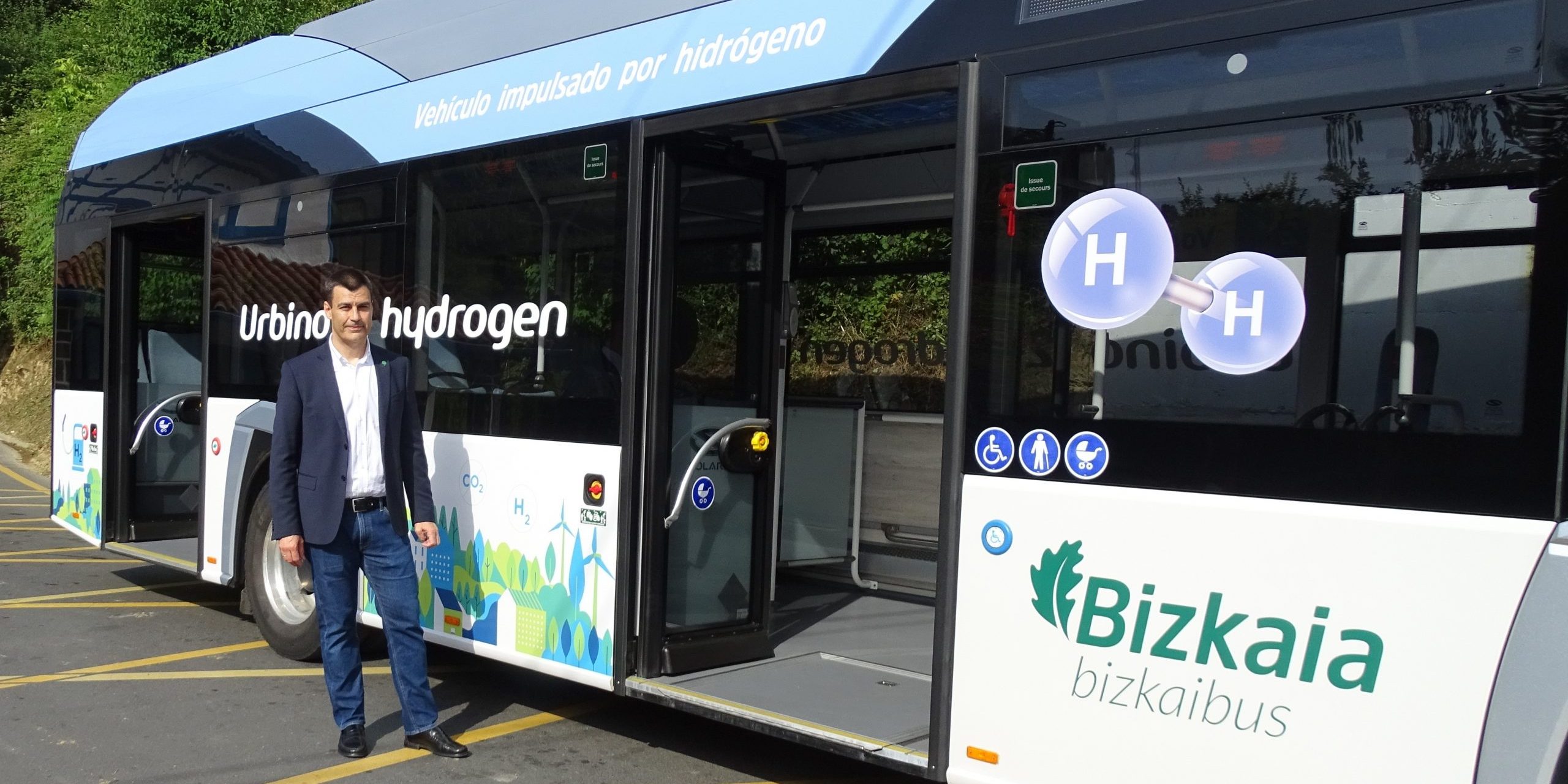Moving towards zero-emission public transport is one of the strategic objectives of the Department of Transport and Sustainable Mobility of the province of Bizkaia. With this objective, the Bizkaibus transport service began the first real circulation and refueling test with a zero-emission bus powered by hydrogen, which will make the usual route on the A3141 line that connects Trapagaran with Cruces.
The vehicle is the Urbino 12 Hydrogen model provided by Solaris. It is 12 meters long, has a capacity for 90 passengers, is silent and offers ride comfort similar to the rest of the buses that make up the Bizkaibus fleet. With an output of 340 hp, it is equipped with a 70 hp hydrogen fuel cell. During the testing period, it will travel the same route as the “parent” vehicle, with journeys of about 200 kilometers per day. It will go without passengers, although weighed down with some 3,500 kg of additional cargo.
In addition, refueling tests will be carried out with a portable hydrogen station installed by Carburos Metálicos in the Bizkaibus depots. The refueling and autonomy times of the Solaris Urbino 12 Hydrogen model are similar to those of a conventional bus, about 8 minutes for a complete refueling, being able to cover great distances with a single tank.
“Hydrogen is a technology that is giving very good results, so it is a good option to test to see how it adapts to the characteristics of the Bizkaibus service and continue advancing in the process of adding buses that are increasingly free of polluting emissions into the public passenger transport of Bizkaia”, said the Deputy for Transport and Sustainable Mobility, Miguel Ángel Gómez Viar, who also added that Bizkaibus already has one of the most sustainable fleets and that in 2022 “it will face one of the biggest fleet renewals of its history with the aim of achieving a more sustainable and environmentally friendly public transport”.
 The Community of Madrid expands its CNG bus fleet
The Community of Madrid expands its CNG bus fleet
The Community of Madrid will add 24 new intercity buses powered by natural gas, as part of the Regional Transport Consortium’s vehicle renewal process. This was announced by the Minister of Transport and Infrastructure David Pérez at the presentation of the new fleet at the facilities of the concessionaire company Martín, in Leganés.
With a length of 12.8 meters, the new coaches make it possible to reduce CO2 emissions by 20% compared to those that use diesel fuel, and particles and NOx by 85%, in addition to reducing noise by 50%. They have a 2,050-liter CNG tank and new equipment that highlights safety, comfort and the most modern communication technology.
The buses, which involved an investment of 5.7 million euros, will provide service on lines 491 (Barrio del Naranjo de Fuenlabrada), 492 Aluche-Fuenlabrada (Parque Granada) and 482 Aluche-Leganés (Barrio de Arroyo Culebro).
Pérez highlighted the regional Executive’s commitment to the decarbonization of public transport and recalled that “55% of the total fleet that circulates through the region moves with clean energy, including the capital.”
With this new purchase, a total of 247 intercity buses from the Consortium run on CNG, with an average age of 4.9 years. In addition, there are 380 hybrid vehicles, two electrics and one powered by hydrogen.







